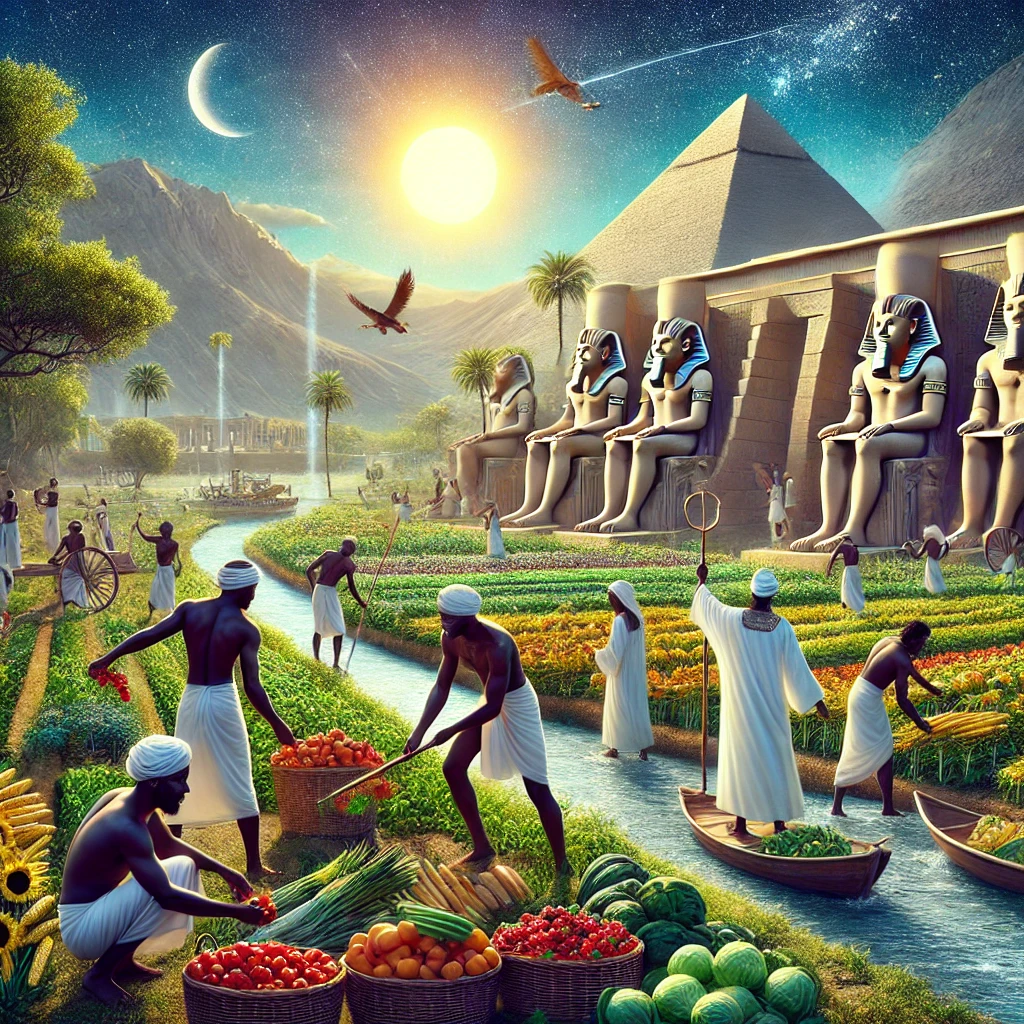Ancient Egypt: From Kemet to Modern Egypt
The land we now know as Egypt was once called Kemet, a name that speaks to its profound connection to life, fertility, and spiritual enlightenment. The transformation from Kemet to Egypt is not just a matter of linguistics but a journey through time, culture, and identity that reveals the enduring legacy of one of the world’s most remarkable civilizations.
The Land of Kemet
In antiquity, the inhabitants of this land referred to it as Kemet, meaning "the Black Land." This name derived from the rich, dark soil deposited by the Nile River, which provided the foundation for its agricultural prosperity. Kemet was more than a fertile plain; it was a cradle of spiritual and intellectual development. It was a land where science, medicine, astronomy, and philosophy flourished alongside profound metaphysical teachings.
The people of Kemet were primarily of African descent, characterized by a range of skin tones from deep ebony to lighter brown, reflecting the diversity of indigenous African populations. They were a proud, resourceful people deeply connected to the cycles of nature and the cosmos. Their advanced understanding of astronomy enabled them to align their temples with celestial phenomena, while their reverence for Ma’at, the principle of truth and cosmic order, guided every aspect of life—from governance to personal conduct. The Kemetic spiritual system emphasized harmony, balance, and the interconnection of all things.
The Transformation to Egypt
The name "Egypt" comes from the Greek "Aigyptos," a term used during the Hellenistic period following Alexander the Great’s conquest in 332 BCE. This marked a significant turning point as the region came under the influence of foreign powers, including the Greeks and later the Romans. These new rulers, predominantly of European descent, introduced a different cultural and racial makeup to the ruling class and elite society. Over time, the indigenous population—the descendants of the original people of Kemet—found their cultural and spiritual practices suppressed or transformed to fit the new power structures.
The Greeks and Romans viewed the spiritual practices of Kemet with a mixture of admiration and appropriation. While they adopted and adapted many aspects of Kemetic wisdom, they often stripped these teachings of their original context and meaning. This cultural shift resulted in a gradual erosion of the rich African heritage that had defined Kemet for millennia.
The Legacy of Kemet
Today, Kemet’s legacy lives on in its monumental achievements and esoteric teachings. The pyramids, symbols of spiritual ascent, and the writings on temple walls remain as silent testaments to a profound understanding of life, the cosmos, and the divine. Kemetic wisdom continues to inspire those seeking knowledge of ancient spiritual practices and their relevance to modern life.
In modern times, a resurgence is occurring within the global Black community. Many are awakening to the rich legacy of Kemet and are actively working to restore its name and build a new Kemet. This movement is rooted in the belief that the mysteries surrounding ancient Egypt would not exist if the true builders—Black Africans—had not been displaced or their history rewritten. The new generation, armed with the ability to read hieroglyphs and decode Kemetic teachings, is bringing back the knowledge and spiritual practices of the Black Land. This revival is a powerful statement of reclaiming cultural heritage and identity, inspiring efforts to integrate ancient wisdom into modern life.
A Visual Journey into Kemet
To illustrate this story, envision a hyper-realistic scene of the Nile’s lush banks during Kemet’s golden age. In this image, you see dark-skinned farmers harvesting abundant crops under a vibrant sun, priests adorned in white robes performing rituals in alignment with celestial patterns, and artisans crafting intricate symbols of Ma’at. Contrast this with an image of the later Hellenistic period, where lighter-skinned rulers in Greek attire oversee the land, and Kemetic temples begin to show signs of Greek architectural influence.

Join Us in Reviving the Teachings of Kemet
The profound teachings of Kemet are not relics of the past but timeless wisdom for the present and future. At Kemetic App, we are dedicated to preserving and sharing the ancient knowledge of Kemet alongside esoteric teachings from around the world. By becoming a member, you gain access to courses, insights, and a community committed to exploring the spiritual heritage of the Black Land and beyond.
Rediscover the wisdom of Kemet. Join Kemetic App today and embark on a journey into the mysteries of ancient Egypt and the esoteric teachings that continue to illuminate paths to enlightenment.
